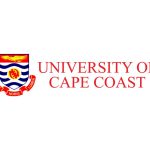For Ghanaian students pursuing engineering studies at Kwame Nkrumah University of Science and Technology (KNUST),…
Decoding University of Cape Coast Cut Off Points

Introduction:
As Ghanaian students pursuing higher education, one of the critical aspects to consider when applying to the University of Cape Coast (UCC) is the cut off point. The cut off point serves as a benchmark that determines whether you meet the minimum requirements for admission into your desired program. In this blog post, we provide an extensive guide to help Ghanaian students currently studying in Ghanaian universities understand UCC’s cut off points and navigate the admission process successfully. By following these guidelines, you can make informed decisions and increase your chances of securing admission to UCC.
I. Understanding UCC Cut Off Points:
– Learn about the concept of cut off points and their significance in the admissions process.
– Understand how UCC determines cut off points for different programs.
II. Researching Program Cut Off Points:
– Explore the official UCC website and admission brochure for the latest cut off point information.
– Understand the cut off point ranges for various faculties, departments, and programs.
– Identify the specific requirements and criteria considered in determining cut off points.
PROGRAMME MALE FEMALE
Bachelor of Commerce (Finance) 15 15
Bachelor of Commerce (Accounting) 12 12
Bachelor of Commerce (Human Resource Management) 20 20
Bachelor of Commerce (Marketing) 20 20
Bachelor of Commerce (Procurement & Supply Chain Management) 17 17
Bachelor of Commerce (Management) 17 17
B.A. (Social Sciences) Econs/Geo/Maths 25 25
B.A. (Population & Health) 26 26
B.A. (Anthropology) 28 28
B.A. (Geography & Regional Planning) 18 19
B.Sc. (Tourism Management) 32 32
B.Sc. (Hospitality Management) 20 20
B.A. (Arts) 33 33
B.A. (Communication Studies) 19 19
B.A. (Theatre Studies) 28 28
B. Music 28 28
B.A. (African Studies) 30 30
B.A. (Linguistics) 26 26
B.A. (Film Studies) 33 33
Bachelor of Medicine & Bachelor of Surgery 06 06
B.Sc. (Fisheries & Aquatic Science) 30 33
B.Sc. (Biochemistry) 15 15
B.Sc. (Nursing) 11 11
B.Sc. (Environmental Science) 29 29
B.Sc. (Molecular Biology & Biotechnology) 28 29
B.Sc. (Entomology & Wildlife). 28 28
B.Sc. (Biomedical Science) 19 19
B.Sc. (Forensic Science) 25 25
B.Sc. (Information Technology) 19 19
B.Sc. (Computer Science) 21 21
B.Sc. (Optometry) 11 11
B.Sc. (Laboratory Technology) 20 20
B. Sc. (Medical Laboratory Technology) 15 15
B.Sc. (Chemistry) 27 27
B.Sc. (Industrial Chemistry) 23 23
B.Sc. (Water & Sanitation) 28 28
B.Sc. (Physics) 27 27
B.Sc. (Engineering Physics) 27 27
B.Sc. (Meteorology & Atmospheric Physics) 27 27
B.Sc. (Mathematics) 29 29
B.Sc. (Actuarial Science) 14 14
B.Sc. (Statistics) 27 27
B.Sc. (Mathematics with Economics) 19 19
B.Sc. (Mathematics & Statistics) 28 28
B.Sc. (Mathematics with Business) 19 19
B.Sc. (Agriculture) 32 33
B.Sc. (Agricultural Extension & Comm. Devt.) 30 30
B.Sc. (Agri-Business) 29 29
B.Sc. (Agro-Processing) 34 34
B.Sc. (Psychology) 20 20
B.ED. Home Economics (Food & Nutrition) 30 30
B.ED. Home Economics (Clothing & Textile) 30 30
B.ED. (Physical Education) 34 34
B.ED. (Social Sciences) Geo/Econs/History 14 14
B.ED. (Accounting) 13 13
B.ED. (Management) 15 16
B.ED. (Arts) 18 19
B.ED. (Social Studies) 18 19
B.ED. (Basic Education) 23 24
B.ED. (Early Childhood Education) 25 25
B.ED. (Science) 23 23
B.ED. (Mathematics) 18 19
B.ED. (Computer Science) 28 28
III. Evaluating Your Eligibility
– Assess your academic performance and compare it to the cut off points for your desired program.
– Determine if you meet the minimum requirements based on your WASSCE/SSSCE results or any other accepted qualifications.
– Consider alternative programs or pathways if your grades fall slightly below the cut off point.
IV. Considering Supplementary Applications:
– Understand the concept of supplementary applications and how they provide an opportunity for candidates with grades below the initial cut off point.
– Research the supplementary application process, deadlines, and requirements.
– Determine if your desired program offers supplementary applications and assess your chances of success.
V. Seeking Guidance and Support:
– Consult with academic advisors, faculty members, or admission officers for clarification on cut off points and program-specific requirements.
– Attend open days, career fairs, or information sessions to gather more information about the programs you are interested in.
– Connect with current UCC students or alumni to gain insights into their experiences and advice on meeting cut off points.
VI. Exploring Alternative Pathways:
– Research the possibility of gaining admission through diploma or certificate programs that provide a pathway to undergraduate studies.
– Understand the admission requirements, duration, and academic progression options for alternative pathways.
– Assess the advantages and disadvantages of pursuing an alternative pathway based on your academic goals and interests.
VII. Planning Ahead:
– Develop a strategic academic plan to enhance your chances of meeting cut off points for your desired program.
– Focus on improving your grades, engaging in extracurricular activities, and gaining relevant experiences that can strengthen your application.
– Consider enrolling in preparatory classes or programs that target the specific subjects relevant to your desired program.
Conclusion:
Navigating the University of Cape Coast cut off points is an essential part of the admission process for Ghanaian students. By understanding the guidelines presented in this comprehensive guide, you can make informed decisions, plan strategically, and increase your chances of securing admission to UCC. Remember that cut off points are not the sole determinant of your potential for success, and there are alternative pathways and options available. Stay focused, work diligently, and seek guidance from advisors and mentors to achieve your academic aspirations at the University of Cape Coast.





